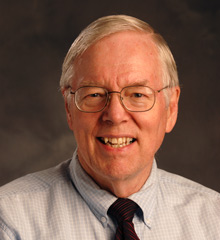Theological Themes in Zechariah
Revised by Cory Driver, 8/23
Faithfulness and restoration
The recurring theme of the book is restoration. If the remnant returning from exile obeys the Lord, the prosperity of the land will be restored (1:16-17; 2:10; 3:6-7; 8:3-8; 9:14-17). Throughout the book, passages of judgment for disobedience alternate with promises of restoration for those who follow the Lord.
Forgiveness
Zechariah includes several images to describe the effect of forgiveness. In 3:3-5 sinfulness is being dressed in “filthy clothes,” and forgiveness is to be clothed in “festal apparel” with a clean turban on one’s head and an angel standing at one’s side. God’s people will be “the apple of my eye” (2:8). The concluding chapter of the book describes the restored and forgiven people of God as living where there is no “cold or frost,” no darkness, and where “the LORD will become king over all the earth” (14:6-9).
God as refiner
God as a refiner of God’s people, as the process of refining purifies and strengthens metal, is found not only here in 13:9, but also in Isaiah 48:10, Jeremiah 6:29; 9:7; Daniel 11:35; and Malachi 3:2-3. The image confronts us with the age-old question of God’s role in human suffering.
God of all, active in history, Lord of all the earth
God not only calls forth leaders for the people of Israel, but is active on their behalf, punishing their enemies. God is the Lord of all the earth (6:5; 14:9), and Zechariah foresees a time when “many nations shall join themselves to the LORD” (2:11). People from many cities and nations will “seek the LORD of hosts in Jerusalem, and…entreat the favor of the LORD” (8:22).
King over all the earth
The LORD is the covenantA covenant is a promise or agreement. In the Bible the promises made between God and God’s people are known as covenants; they state or imply a relationship of commitment and obedience. More God of Israel, and Zechariah’s immediate purpose is to encourage the rebuilding of the TempleThe Jerusalem temple, unlike the tabernacle, was a permanent structure, although (like the tabernacle) it was a place of worship and religious activity. On one occasion Jesus felt such activity was unacceptable and, as reported in all four Gospels, drove from the temple those engaged… More. However, typical of the later prophets, his view of God is that the LORD is not only the God of the Jewish people, but ultimately the God over all nations.
Ritual versus compassion
Following the visions of chapters 1-6, the prophet speaks a series of oracles. Chapter 7 begins by saying that the four traditional times of fasting (8:19) no longer apply to the present age. The passage is reminiscent of other verses from the prophets, urging ethical actions rather than rituals (see Isaiah 1;11-14; 61:1, 8; Amos 5:10-15, 21-24; Micah 6:6-8).
Leadership
A recurring theme throughout the book is the faithful rule of God’s people. Images abound describing what kind of ruler Zechariah anticipates–“Branch,” combining the religious role of the priestA priest is a person who has the authority to perform religious rites. In New Testament times priests were responsible for daily offerings and sacrifices in the temple. More with royal leadership (6:12-13); one who cares for the widowA widow is a woman whose spouse has died, often plunging her into poverty and putting her in a vulnerable position in society. Jesus, in his concern for the poor, regards widows with compassion and concern. More and the orphan (7:8-10); a king riding on a donkey instead of a warhorse (9:9); a faithful shepherd (10:3; 11:7); and a leader of the remnant faithful to the Lord (13:8-9).
Messiah
Zechariah does not use terms such as “messiahThe Messiah was the one who, it was believed, would come to free the people of Israel from bondage and exile. In Jewish thought the Messiah is the anticipated one who will come, as prophesied by Isaiah. In Christian thought Jesus of Nazareth is identified… More,” “anointed one,” “servant,” etc., but several references in the book have been applied in the New Testament to Jesus–the king riding a donkey into Jerusalem (9:9), the betrayal with thirty pieces of silver (11:12), the faithful shepherd struck down (11:7; 13:7), the pierced one (12:10), etc.
Satan
A discussion of evil in the Bible involves a whole constellation of themes–the devil, Satan, fallen angels, temptation, etc. In Zechariah, Satan is “the Accuser” (3:1), not specifically the personification of evil, although his accusation of JoshuaThe successor of Moses, Joshua led the Israelites into Canaan. More, the high priestThe high priest was the most powerful priest in the temple in Jerusalem. The high priest Caiaphas held the office during the trial of Jesus. Later, in the New Testament book of Hebrews, the role of merciful high priest is ascribed to the resurrected Jesus. More, is rebuked by the Lord.
